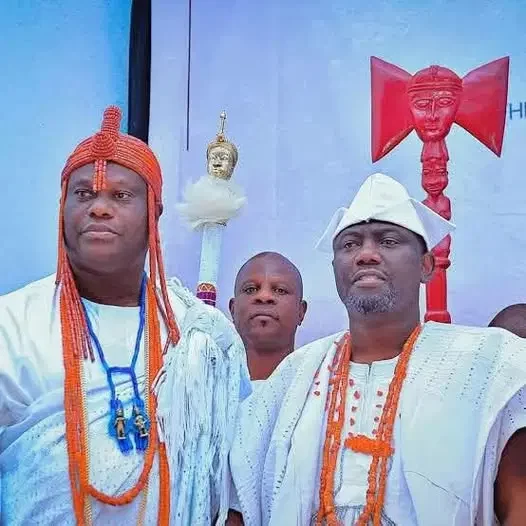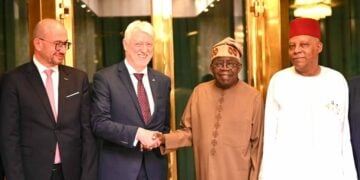An historian, Dr Ashipa Akinyele Oladeji has declared that the Ooni of Ife is the undisputed spiritual head of the Yorubas while the Alaafin of Oyo remained as the paramount ruler of the race.
Dr Oladeji, in a rejoinder to respected Ifa priest, Araba Ifayemi Elebuibon on the recent seeming face-off between the Alaafin of Oyo, Oba Abimbola Akeem Owoade and the Ooni of Ife, Oba Adeyeye Enitan Ogunwusi said each of the influential Yoruba monarchs have their unique place, authority, and legacy.
According to him, “The Ooni’s role remains invaluable as the spiritual head of the Yoruba, but this does not diminish the Alaafin’s position as paramount ruler of the Yoruba nation. Each has its place, its authority, and its legacy.
Citing historical sources, Oladeji maintained that the progenitor of the Yoruba race, Odùduwà had only one legitimate child, Okanbi, from whose princes emerged dynasties and kingdoms, with Oranmiyan as the most powerful.
“Oonirisa, though not of Odùduwà’s blood, grew up in the palace, mastering the rituals, sacrifices, and spiritual duties of the shrine.
“This made him a fitting choice to act as Adélé Odùduwà when Odùduwà disappeared, but it did not elevate him above Odùduwà’s direct descendants. He was never an heir, never a conqueror, only a placeholder.
“The proper place of the Ooni in history must not be confused or rewritten. Odùduwà was never an Ooni. The Ooni is, and has always been, Adélé OOdùduwà, the placeholder, not the progenitor. Neither blood nor conquest established his stool.
“Thus, the two roles were distinct and complementary:
The Alaafin, paramount ruler, commander of armies, and appointing authority for key offices such as the Aare Ọnàkakanfò. The Ooni, spiritual head, custodian of sacred rites, and mediator in conflicts”, he said.
Speaking on the colonial recognition of the monarchs, Oladeji said even the British, in their colonial ordering, recognised this distinction.
“The Alaafin of Ọyọ́ was acknowledged as paramount ruler of the Yoruba and was the one who signed all treaties with the colonial authorities (Crowther, 1852; Falola, 1999). Ifẹ, having no army and no conquests, could not assume that role,” he said.
He stressed that “this recognition was never to deny Ifẹ’s spiritual headship. Indeed, it was the Ooni who was called to mediate disputes such as the one between the Elepe and the Akarigbo.
“The Alaafin could not have been summoned in such matters unless war was intended, for war was his instrument, while spiritual arbitration belonged to Ifẹ”, he added.
He explained that the history of Yoruba kingship was layered, complex, and often contested, saying “Like the endless debates between Israel and Palestine, the interpretation depends on how far back one is willing to travel.
“From the beginning, Ilé-Ifẹ was the cradle of the Yoruba people, the sacred seat of Odùduwà, “our great progenitor. There is an old Yoruba saying: ‘Where the head is, there is the headquarters. ‘Ifẹ was that head—the spiritual root of the Yoruba nation.
“Yet, no king can make all his children kings within his palace. Odùduwà therefore sent them out to establish new territories. Among these was Oranmiyan, who went on to found the great Oyọ́ Empire, an empire that shaped Yoruba history and influenced kingdoms far beyond,” he said.





